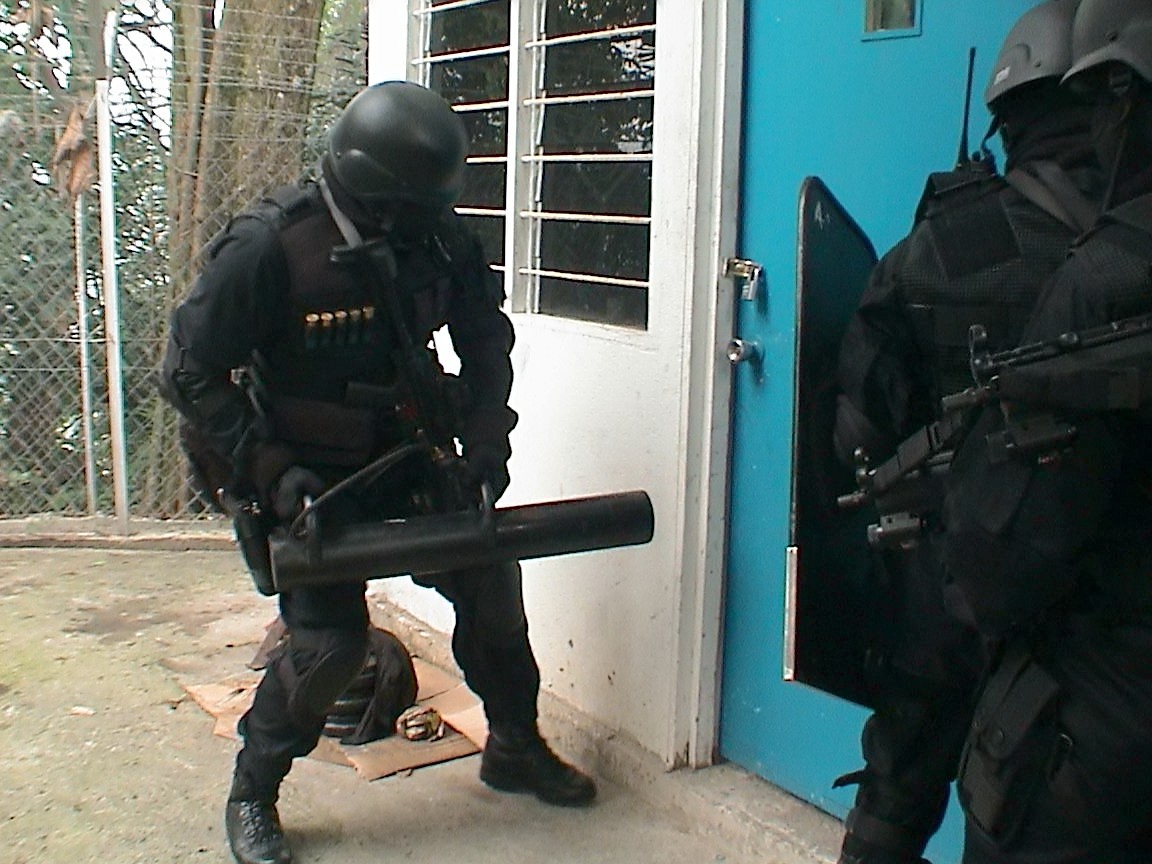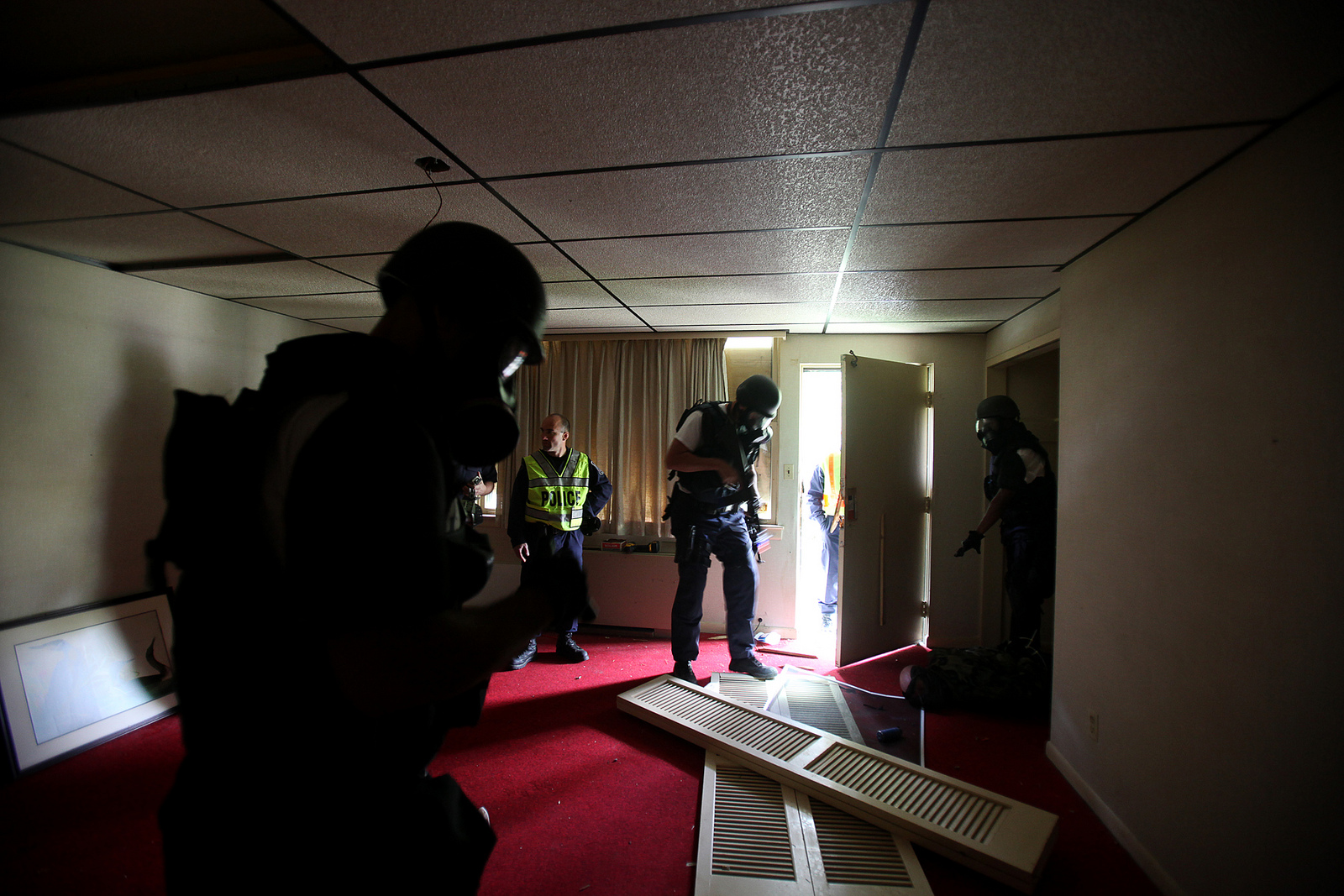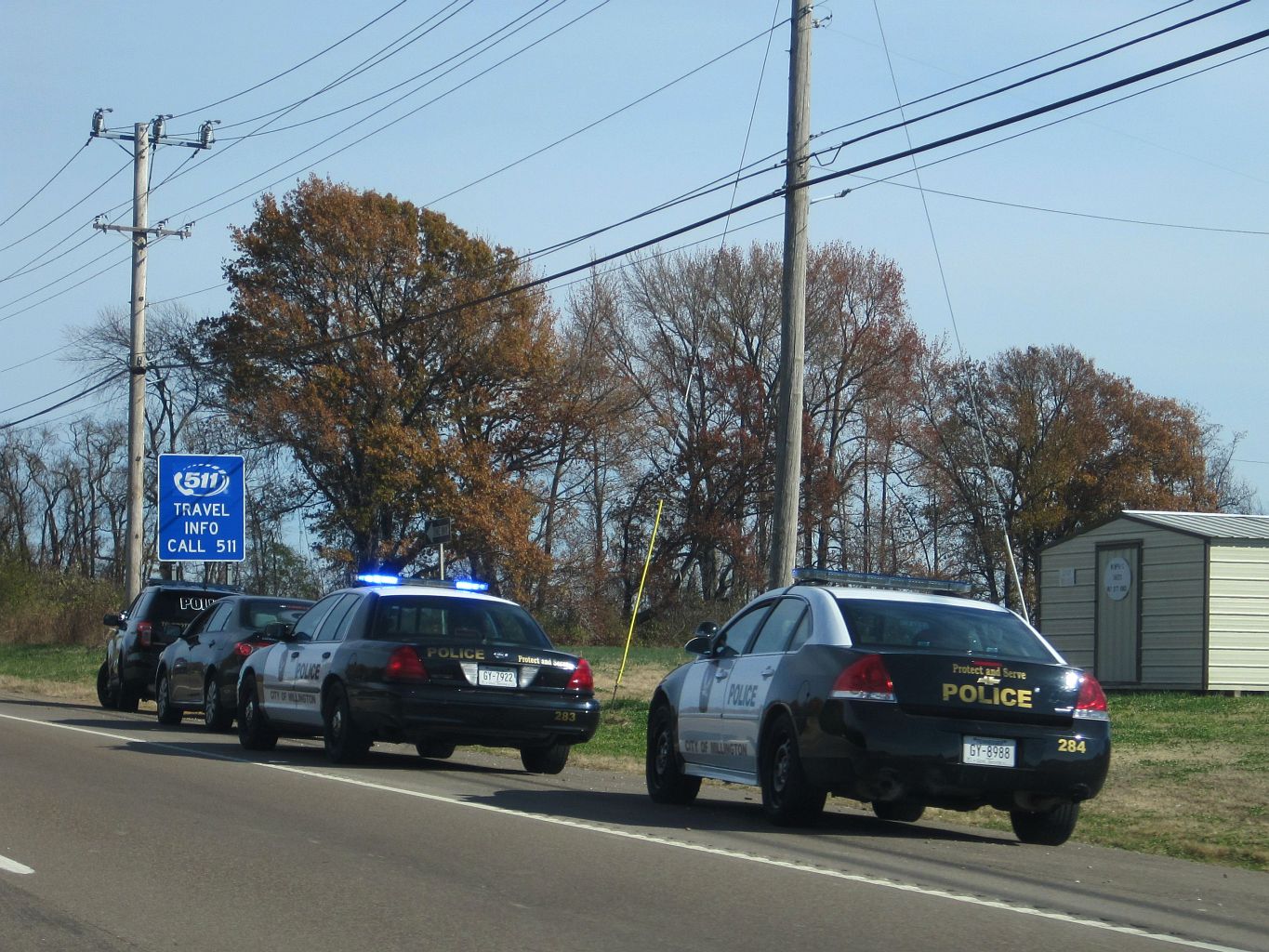What to Do If the Police Show up at Your Door Uninvited

By:
There are many encounters that you don't want to have with the police. One is having them show up on your doorstep without warning.
You hear a knock at the door, you answer, and suddenly you're confronted with the possibility that you're suspected of a crime. It is a frightening moment, and one for which you must prepare.
"Encounters with the police can be terrifying, and an unexpected knock on your door can be especially unnerving and catch people off guard," Bina Ahmad, a social justice attorney, told ATTN:.
The biggest mistake people make when police come to the door.

In that situation, the most common mistake people make is letting police into their house without a search warrant, Ahmad said. You may think that you have nothing to hide, but there are many ways this can be a bad idea. "Once an officer is in your home, it's almost impossible to control where they go when inside, where they search, and even harder to get them to leave," Ahmad explained.
Related: You're Face To Face With A Cop...Here's What You Should Do
When the police show up, it's important for you to know your rights. "Unless there is a trail of blood leading to your door or an armed gunman fled police by running into your home moments ago, the police cannot use the excuse of 'exigent circumstances' to gain immediate access to your home without your consent," Ahmad said.
In what circumstances can police enter your home without a warrant?
 Flickr/Fort George G. Meade Public Affairs Office - flickr.com
Flickr/Fort George G. Meade Public Affairs Office - flickr.com
Exigent circumstances offer police an exception to the rule that requires a warrant for them to enter a home. If the police have probable cause to believe a crime has been or is being committed in a home — following the aforementioned trail of blood, for example — then they can enter without a warrant.
But if that's not the case, "if it's the police or some other law enforcement agency, ask if they have a warrant," Ahmad advised. "If they do, have them slide the warrant under the door while the door is still closed." At this point, you will want to make sure the warrant has been signed by a judge, that it specifies your address, and that it has the correct date.
Related: Federal Court Says That It's OK If a Drug Dog Is Just as Accurate as a Coin-Flip
"If they do not have a warrant, tell them to slide their business card under the door, and you will have your lawyer contact them, and say nothing else. Then call a lawyer," Ahmad said.
If the police have a valid warrant to search your home, you cannot refuse them entry. But you can film what they're doing or at least follow them around while they search.
If the police have an arrest warrant instead of a search warrant, the best thing to do is have the person being arrested go outside and give themselves up, Ahmad said.
If police are allowed inside to arrest someone, they are free to search the premises. "This is all, of course, if they knock," she said. "Often times, police simply blow the door open with a battering ram early in the morning to catch folks off guard, using the excuse that evidence of criminality they are seeking could be destroyed if they knock and give people a heads up that they are there."
In that situation, there's not much you can do but get a copy of the warrant once they're inside, Ahmad said. But you should follow them while they search. A major problem with a search is that you may not realize something in your house is incriminating. As an example, it's possible your roommate bought something illegal and brought it into the house and didn't tell you.
Police don't necessarily have to tell you the truth.
 Wikimedia/Thomas R Machnitzki - wikimedia.org
Wikimedia/Thomas R Machnitzki - wikimedia.org
Related: Police Are Using Your Social Media Profiles to Calculate "Crime Scores"
Another scenario occurs if the police are targeting certain kinds of people.
"I've seen police obtain important information about political activists, such as who they organize with, what their strategy is, what their politics are, putting entire organizing communities at risk of being targeted, surveilled, and entrapped," Ahmad said.
We hope they're only bothering people implicated in crimes, but it's possible they might just be sniffing around.
"Police are allowed to stretch the truth as part of their investigatory powers," Ahmad said. "They can tell you they are investigating a missing child in the neighborhood, that their visit is simply 'routine' to get to know the neighborhood, or that it's best if you simply let them in so they can talk to you, since you have 'nothing to hide,' when all of this can be completely untrue and simply a way of gaining access to your home."
Just because you think you have nothing to hide doesn't mean that's the case, and you shouldn't be bullied into revealing more than you have to. The Fourth Amendment protects Americans from "unreasonable searches and seizures." You have a right to privacy unless the government can prove it has a specific reason to be searching your home.
ATTN: reached out to the Los Angeles Police Department's police union as well as the New York Police Department's police union. Neither returned a comment before publication.
